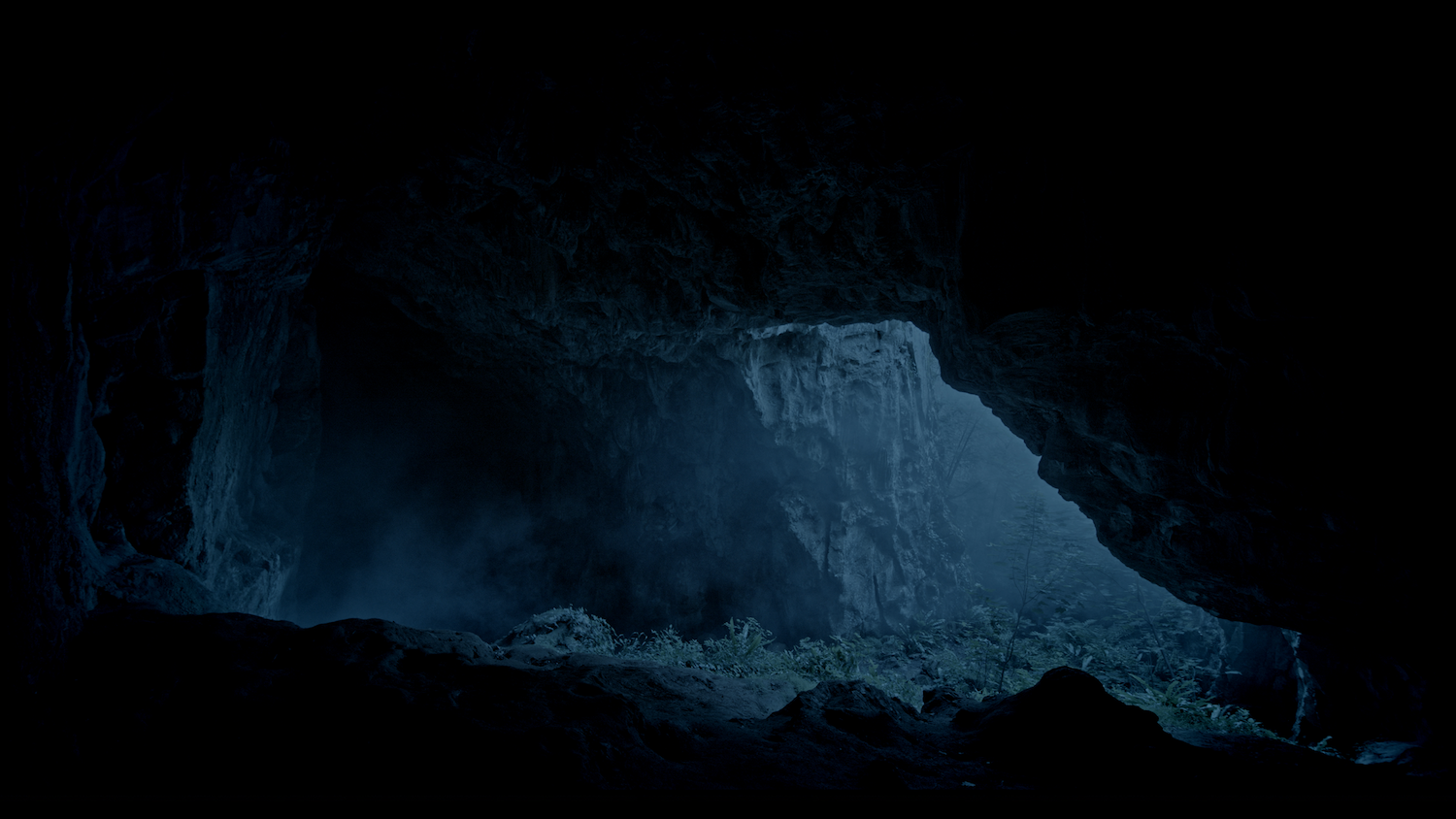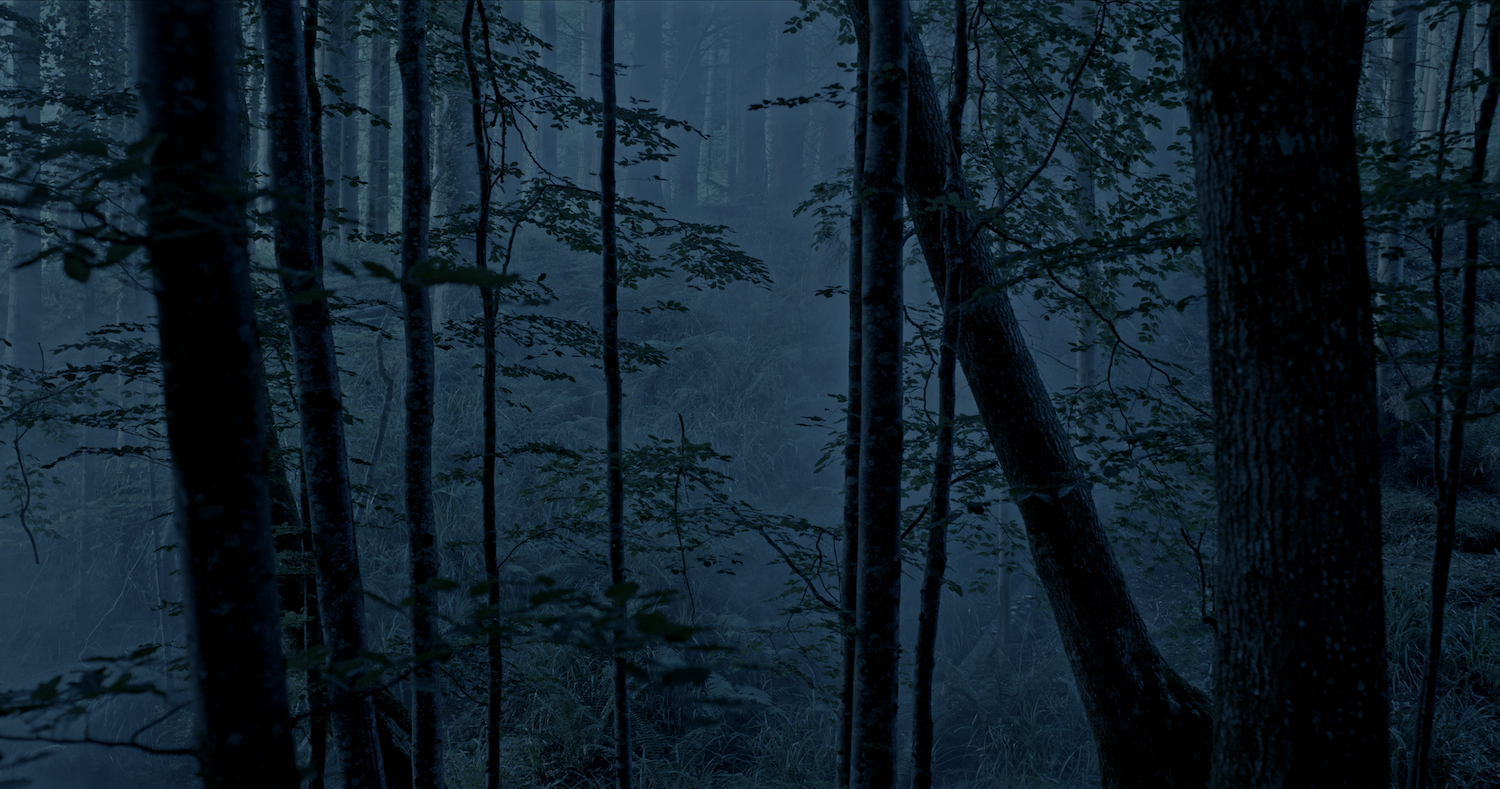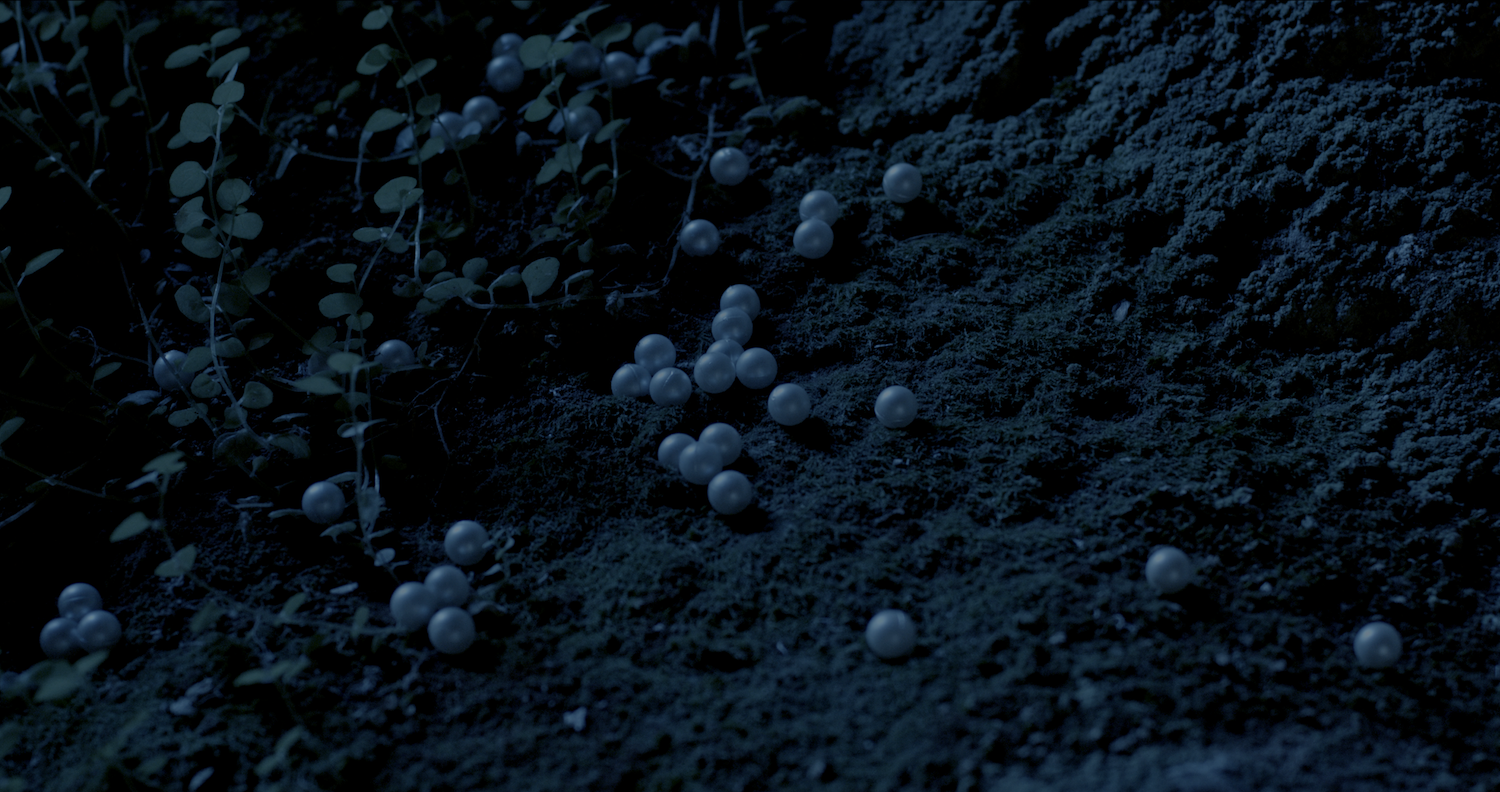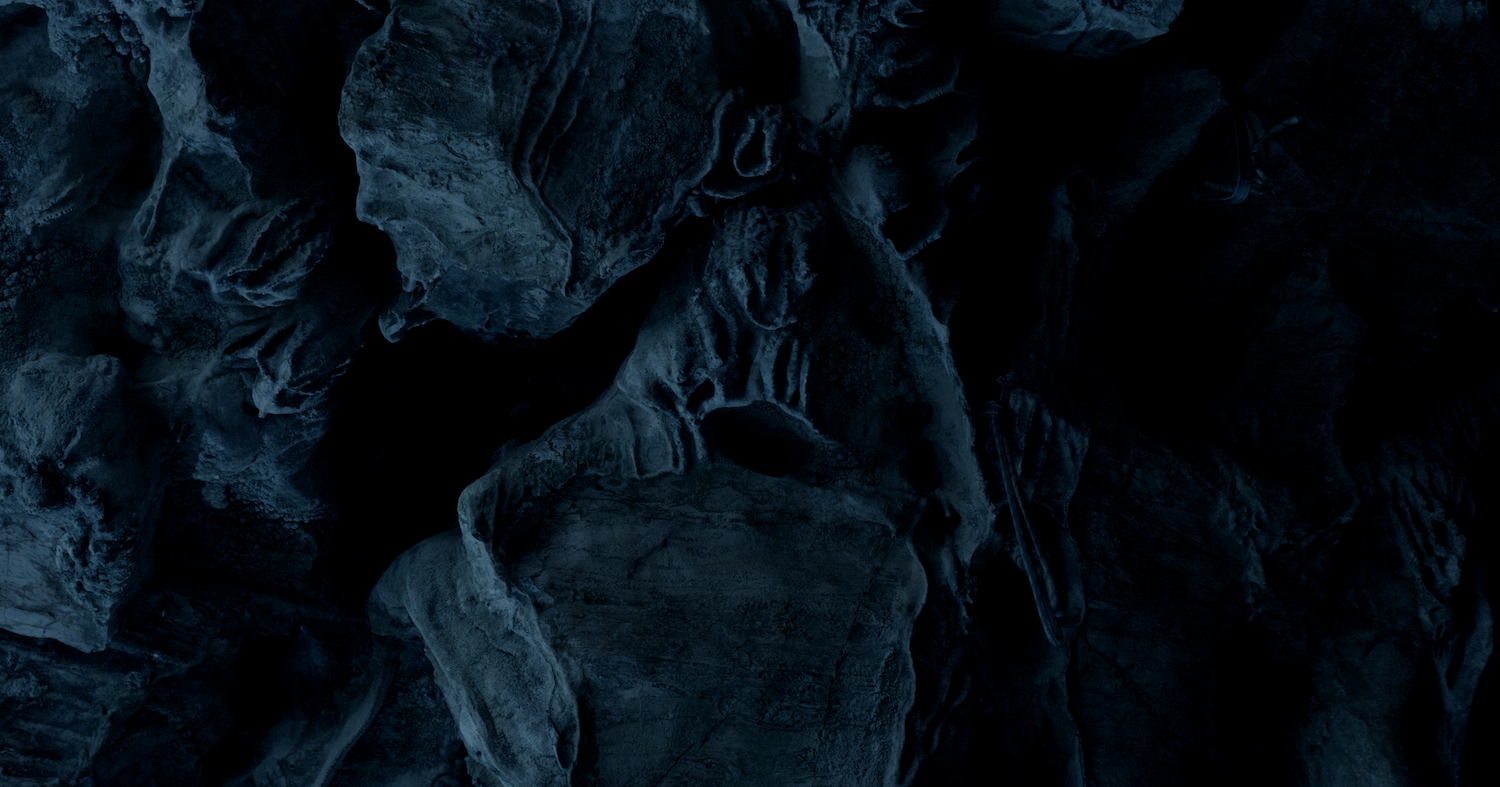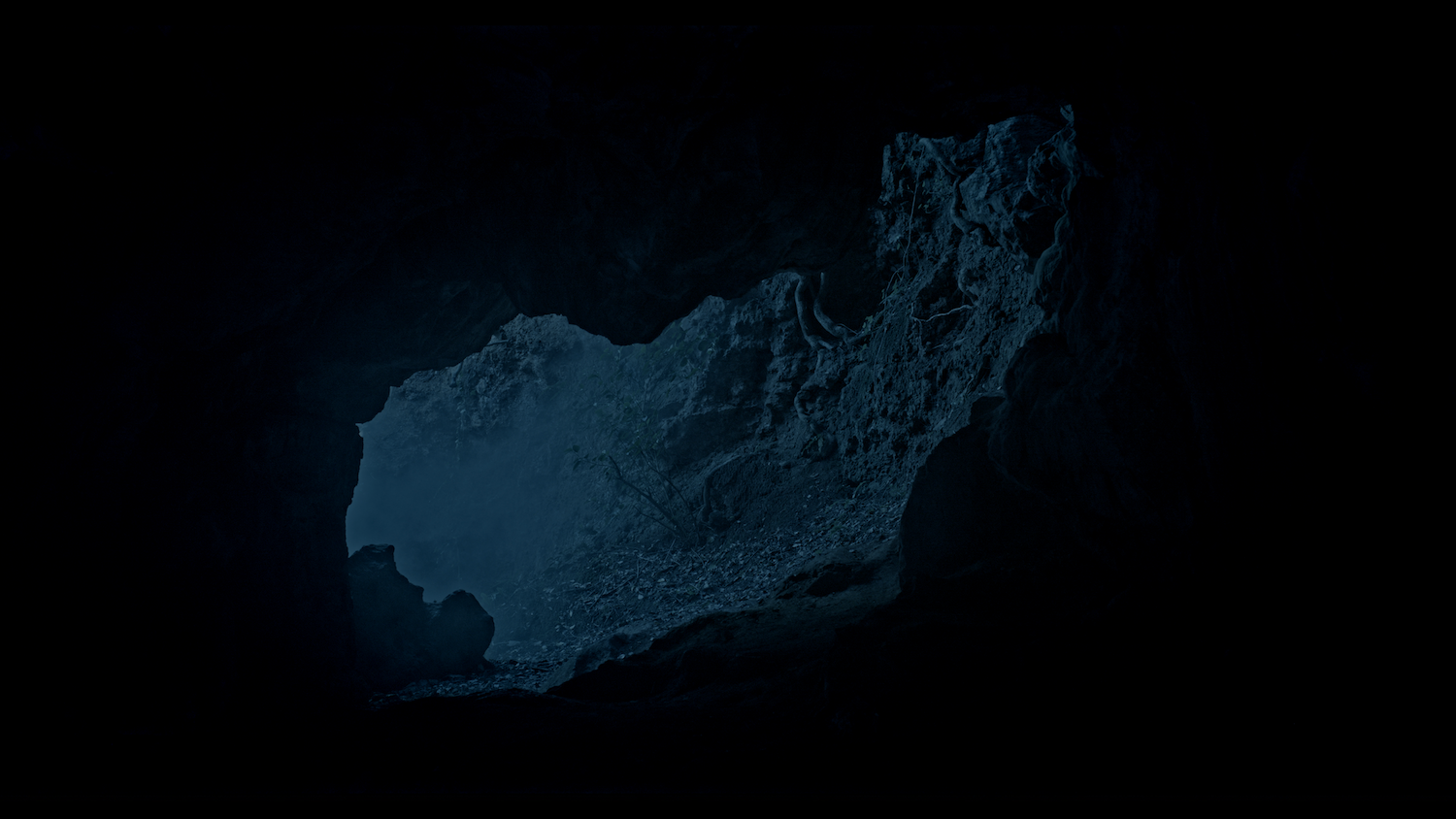The title of Michael Ho’s Echoes from the Void sounds like a contradiction in terms, albeit one that deftly captures a prevailing air of slightly scrambled reality, where rumours arise out of nowhere and disinformation proliferates in the absence of any discernible source. A resonant metaphor for these confusing times might be found, Ho suggests, in the children’s game of ‘Chinese whispers’, and its illustration of the extent to which messages widely shared or indiscriminately forwarded become distorted or detached from their original meaning. Like the unstable, imprecise process it describes, the phrase itself carries associations that are deeply ambivalent; increasingly so in the light of Sinophobic conspiracy theories in the wake of the coronavirus pandemic. At the start of the 12-minute video, Ho stands in the depths of a forest glade, and barks out the assertion that ‘Covid is a hoax’, his words cascading through the trees, down the valley and into the mouth of a cave. Overlaid with what seems like the chime of ritual bells, the sound boomerangs around the underground recesses, as if under the spell of a subliminal bat signal. Accompanying the trickle of water over rock is a drip-drip-drip of glistening pearls: a glint of buried treasure perhaps, or a hint of mysterious, alien spawn. Drawing on the archetype of the cave as an analogue for the echo chambers of contemporary social media, Ho reminds us how these shadowy, subterranean spaces have haunted the imagination for millennia: places of memory and myth, and a primal stage for the competing claims of reality and illusion.
Read Gary Zhexi Zhang's essay in which he traces the underlying meanings and associations of Michael Ho's Echoes from the Void.
